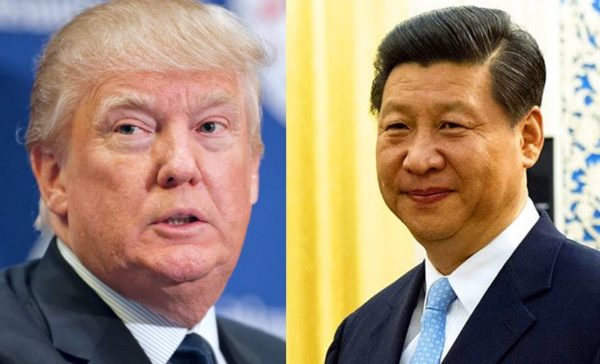
POWER PLAY: How Trump’s Withdrawal from WHO Gives China the Upper Hand
By Zekeri Idakwo Laruba
The United States’ withdrawal from the World Health Organisation (WHO) may likely create a power vacuum, and China is poised to fill it. This move marks the second attempt by Trump to leave the WHO, after his first attempt was reversed by Joe Biden.
By stepping away, the Trump’s administration has handed China the keys to global health leadership, which has raised concerns about the implications of this shift in power dynamics.
Trump’s regime decision to part way with the WHO was motivated by his administration’s criticism of the organisation’s handling of the COVID-19 pandemic, particularly its alleged closeness to China. However, this move may ultimately undermine U.S. influence in global health policy and create an opportunity for China to expand its reach.
Another Opportunity to Promote BRI
China stands to gain significantly from this power play. As the world’s second-largest economy, China has been actively promoting its Belt and Road Initiative (BRI), a massive infrastructure project aimed at connecting China with other parts of Asia, Europe, and Africa. The BRI has been criticised for its lack of transparency and potential for debt traps, but it has also enabled China to establish itself as a major player in global development.
Also known as the One Belt One Road and sometimes referred to as the New Silk Road, the BRI is a global infrastructure development strategy adopted by the government of the People’s Republic of China in 2013 to invest in more than 150 countries and international organisations. The BRI is composed of six urban development land corridors linked by road, rail, energy, and digital infrastructure and the Maritime Silk Road linked by the development of ports.
It is considered a centerpiece of Xi Jinping’s foreign policy. The BRI forms a central component of Xi’s “Major Country Diplomacy” strategy, which calls for China to assume a greater leadership role in global affairs in accordance with its rising power and status. As of early 2024, more than 140 countries were part of the BRI.
The initiative was incorporated into the constitution of the Chinese Communist Party in 2017. The Xi Jinping Administration describes the initiative as “a bid to enhance regional connectivity and embrace a brighter future.” The project has a target completion date of 2049, which will coincide with the centennial of the People’s Republic of China (PRC)’s founding.
Supporters praise the BRI for its potential to boost the global GDP, particularly in developing countries. However, there has also been criticism over human rights violations and environmental impact, as well as concerns of debt-trap diplomacy resulting in neocolonialism and economic imperialism.
Last Line
By filling the power vacuum left by the U.S., China can further consolidate its position as a global leader in health policy. This could have significant implications for the future of global health governance, particularly in areas such as pandemic preparedness and response.
The U.S. withdrawal from the WHO also raises questions about the organization’s ability to hold China accountable for its actions. Without a formal seat at the table, the U.S. will struggle to demand transparency and accountability from China, particularly with regard to the origins of COVID-19.
Undoubtedly, Trump’s decision to withdraw from the WHO has already started to reshape global health. The WHO will have to adapt to this new reality, but the decision poses bigger questions about America’s role on the global stage and its responsibility in safeguarding health for everyone.
The US withdrawal could lead to a substantial funding gap, as the country is the largest donor to the WHO, contributing $1.28 billion in the 2022-23 biennium. Was this a strategic power play to force change, or will it weaken the U.S. and the world in the process? Only time will tell.
